Bitcoin set for a rebound that could stretch toward $100000, BTIG says
This week will be one of the busiest of 2025, with numerous earnings reports and significant economic data releases. That will only add to the daily rounds of volatility we’re already experiencing surrounding tariff news.
The economic data for April should start shedding light on the potential fallout from the Liberation Day tariff announcement, while earnings results from Apple, Microsoft (NASDAQ:MSFT), Meta (NASDAQ:META), and Amazon (NASDAQ:AMZN) will offer further insights into how severe that fallout might become.
Positioning ahead of these earnings appears surprisingly bullish, especially for the four mega-cap stocks.
Apple, for example, has a notably large positive net delta exposure, indicating that market makers are positioned long as a hedge.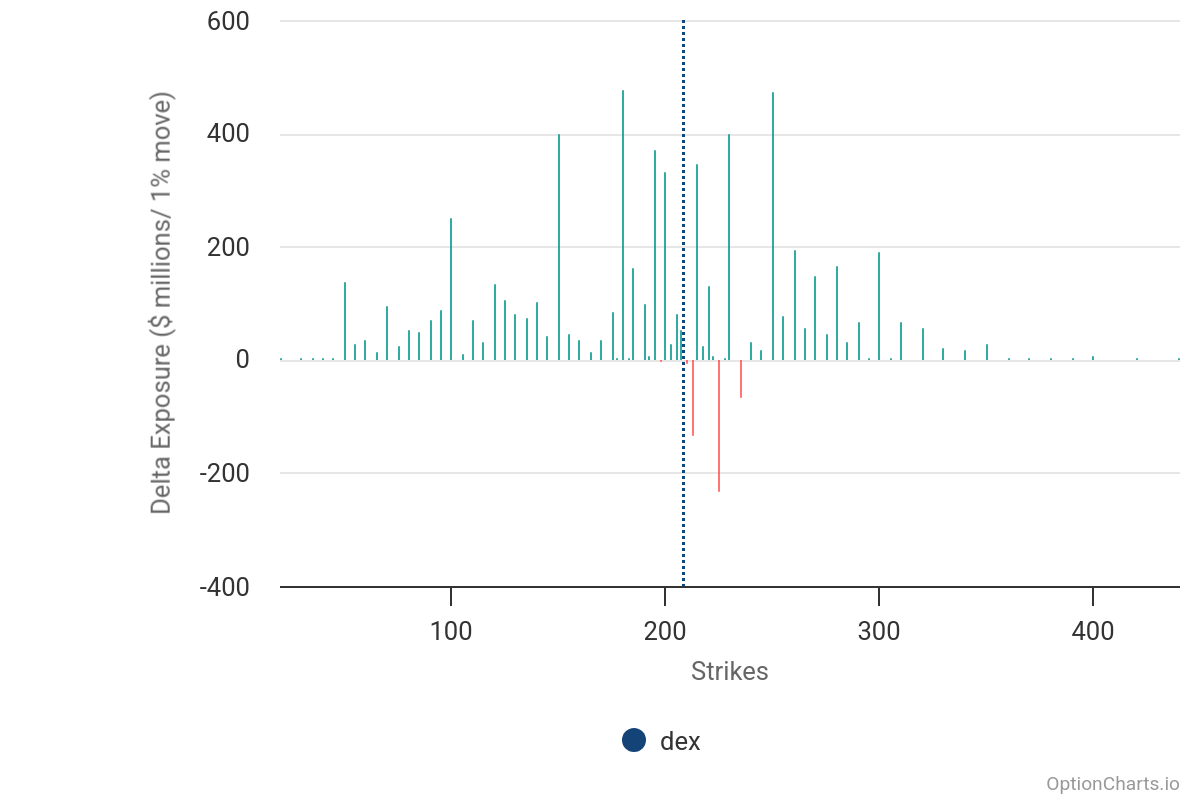
The issue is that implied volatility is unusually high for Apple, causing premiums on puts and calls to become elevated. After the company reports results, implied volatility will collapse, leaving market makers over-hedged. As a result, they’ll need to sell Apple shares (NASDAQ:AAPL) to rebalance their positions. This places Apple in a situation where, regardless of earnings or guidance, the stock is likely headed lower.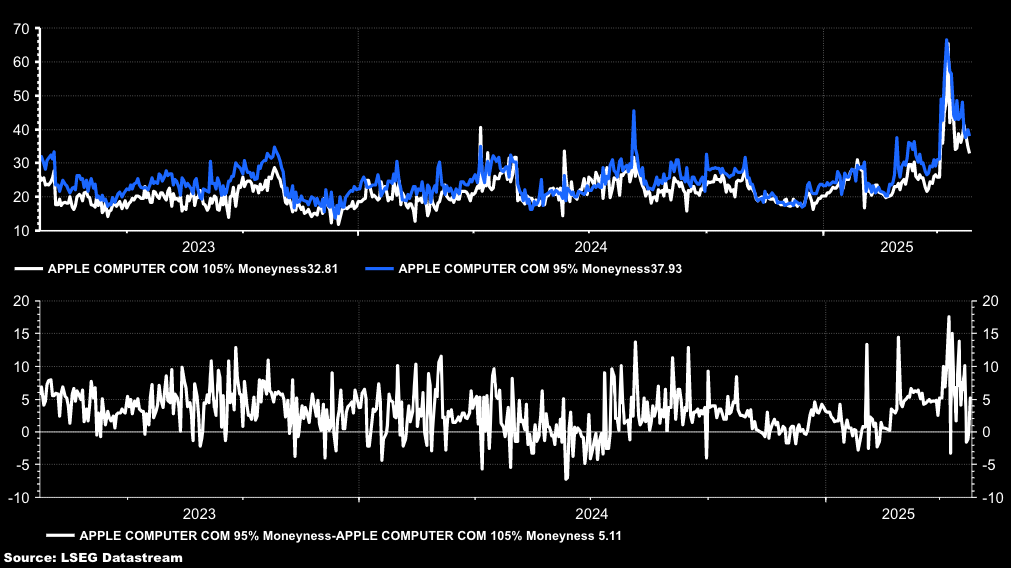
It’s the identical story for Meta as well, with very bullish options positioning heading into earnings. High implied volatility means premiums on options are elevated, and once Meta reports results, implied volatility will sharply decline. This will leave market makers over-hedged and forced to sell shares to rebalance positions, making a decline in Meta’s stock likely regardless of the earnings outcome.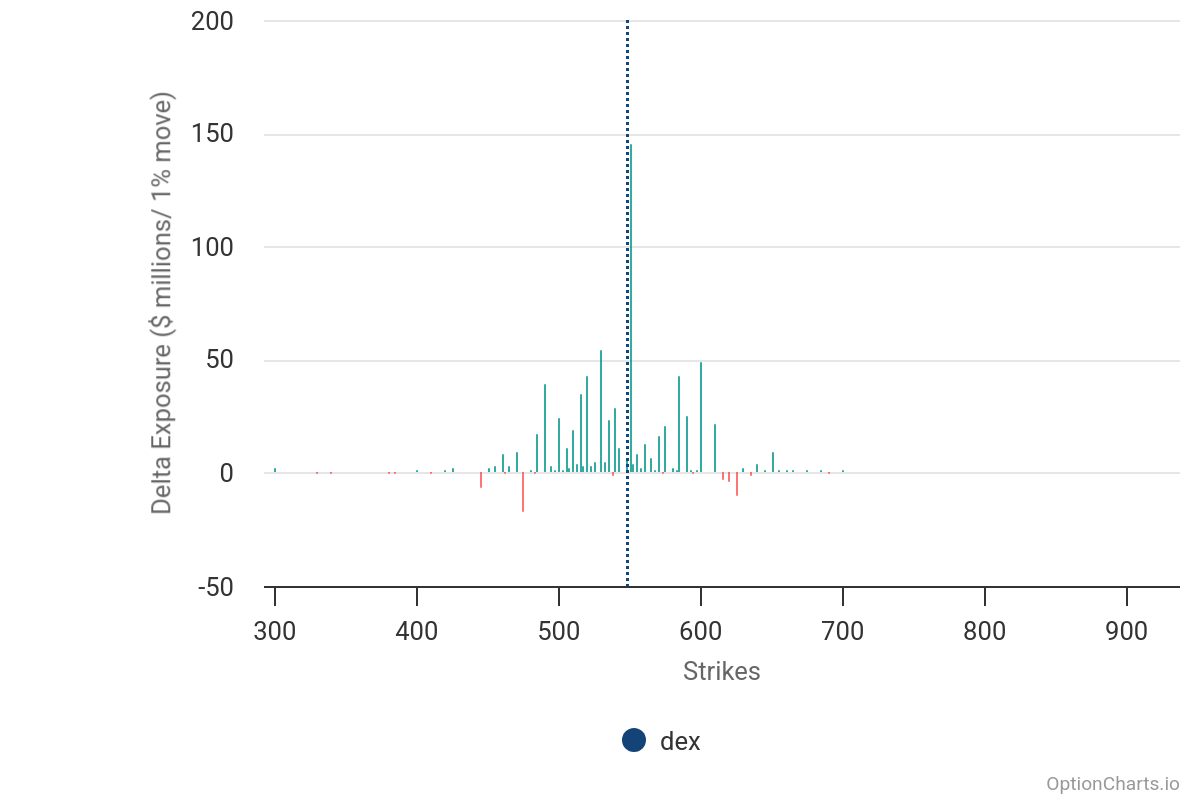
In fact, Meta is arguably in an even worse position because not only is its delta positioning extremely positive, but the skew is negative. This means the 105% moneyness options are more expensive than the 95% moneyness options. Therefore, market makers aren’t just heavily hedged for an upward move—they also face more implied volatility burn-off in calls than puts.
Like Apple, unless Meta delivers jaw-dropping results that surprise even the most bullish analysts, its shares are likely headed lower.
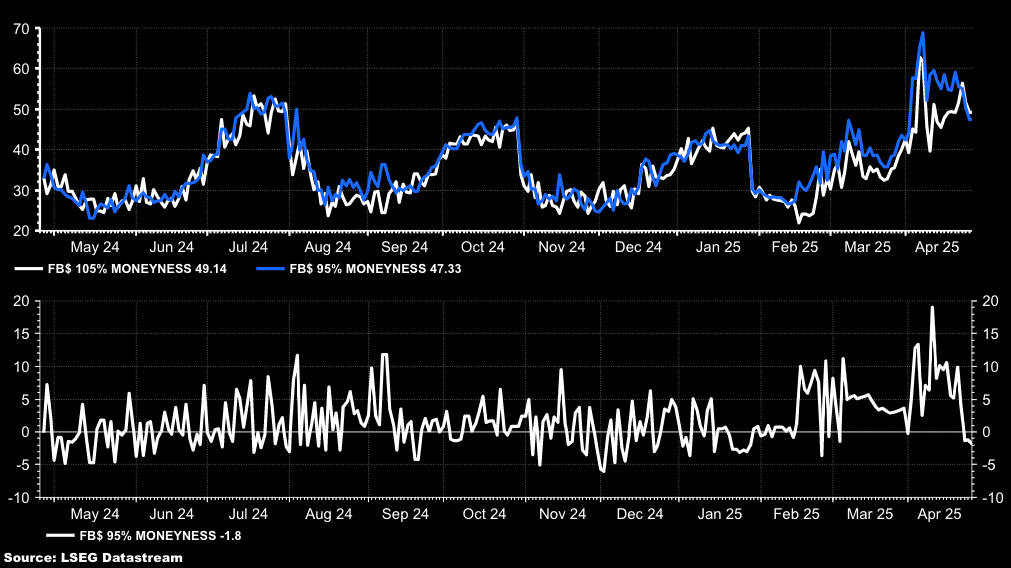
Amazon is no different from Meta or Apple, with similarly heavy positive delta positioning. Market makers are once again heavily hedged for an upward move, creating the same scenario: implied volatility will collapse after earnings, leaving market makers over-hedged and forcing them to sell shares to rebalance. This means Amazon shares, like Apple and Meta, are likely to decline after reporting results.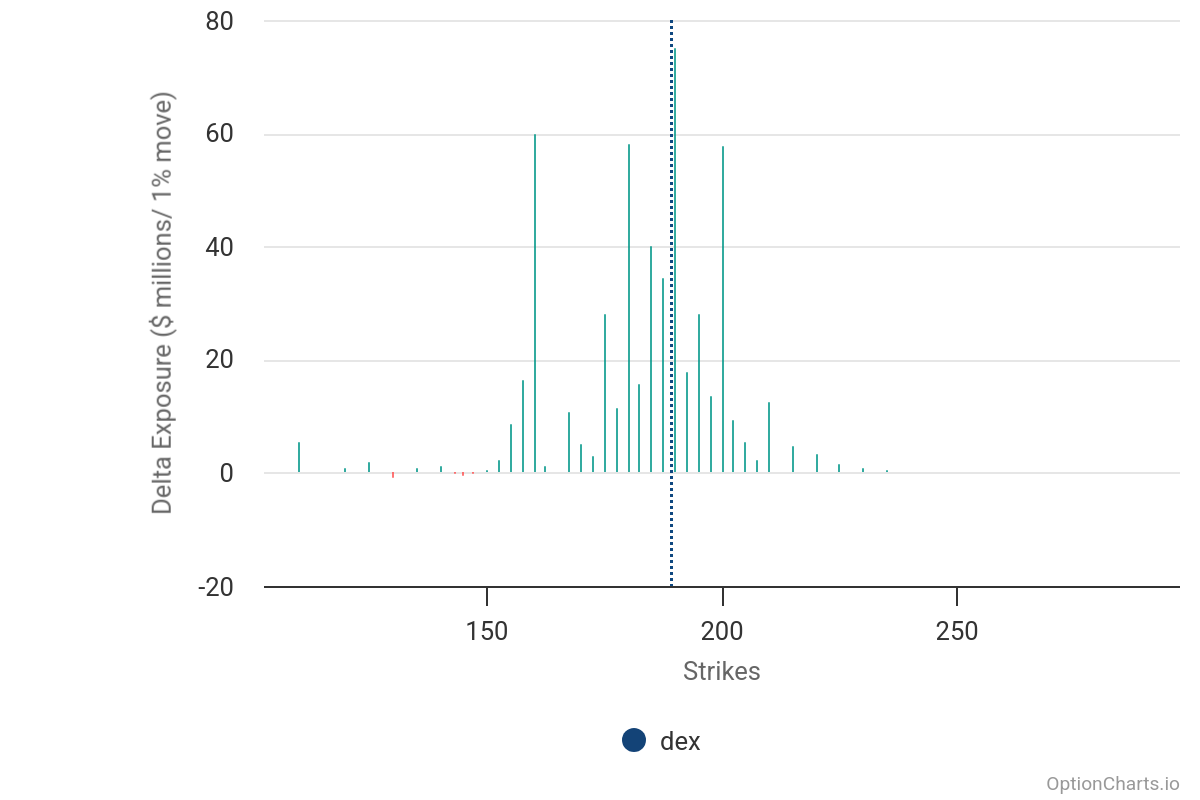
Also, like Meta, Amazon has a negative skew, meaning upside hedges are more expensive than downside ones. This again suggests the call options will lose value much faster than the puts after earnings, further increasing selling pressure on the stock as market makers unwind their hedges.
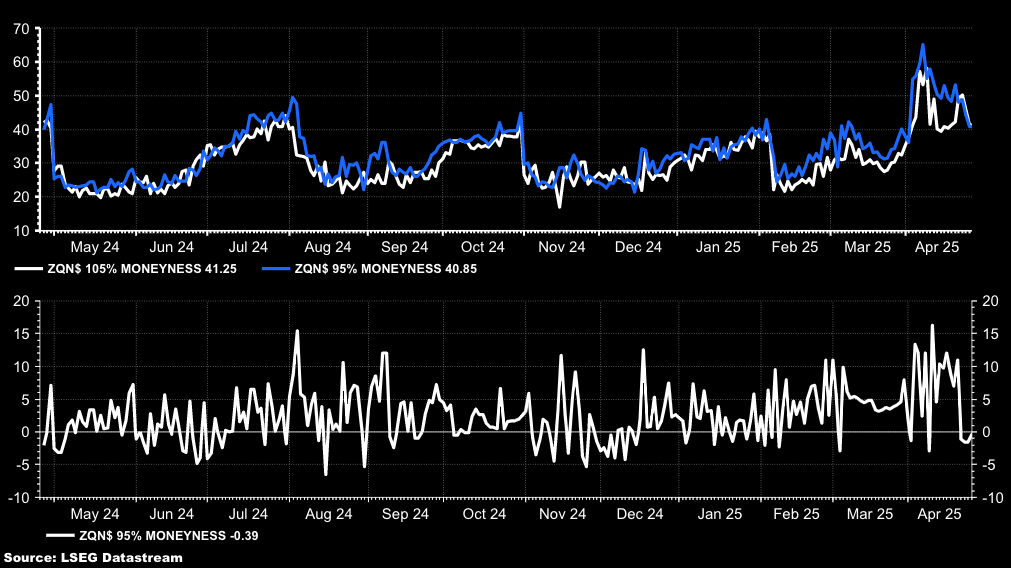
Finally, Microsoft is no different, also carrying a heavily positive delta position heading into its earnings this week. Just like Apple, Meta, and Amazon, market makers are significantly hedged for an upward move, making Microsoft’s shares similarly vulnerable to selling pressure after implied volatility collapses following the results.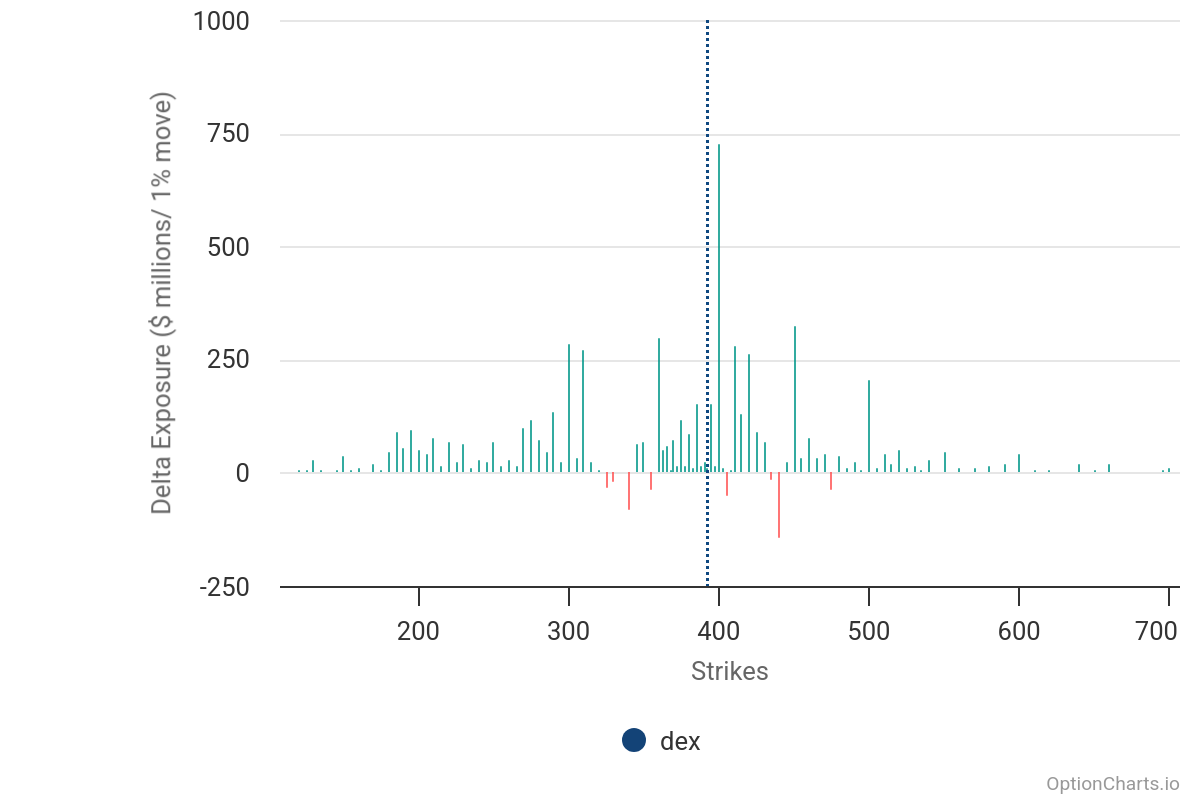
However, Microsoft’s skew is positive, meaning downside implied volatility remains significantly higher than upside implied volatility. Despite this difference, it’s unlikely to matter much, given the substantial positive delta already embedded in the options market. Once implied volatility collapses after earnings, market makers will still need to unwind their hedges, likely causing selling pressure in Microsoft shares similar to Apple, Meta, and Amazon.
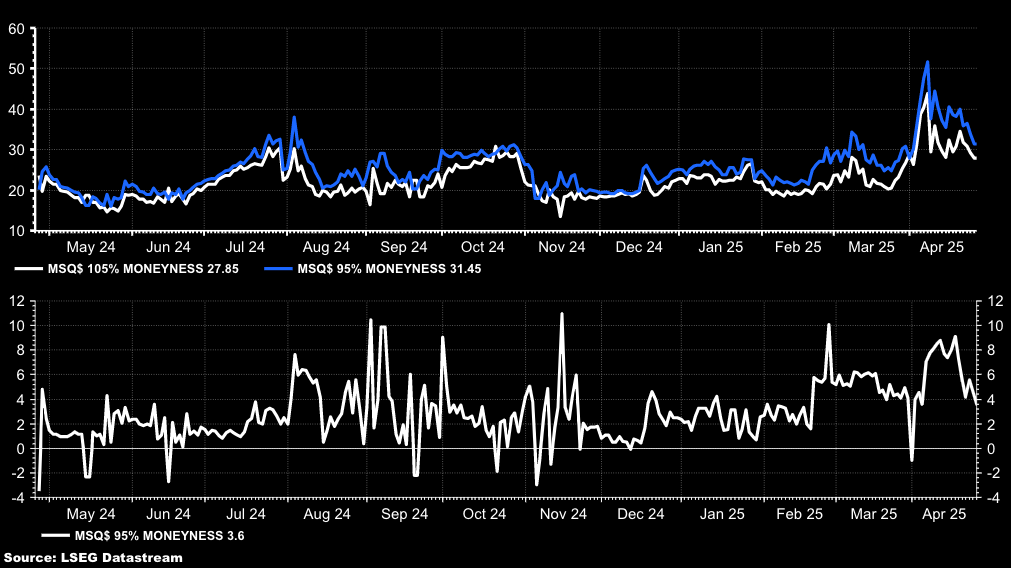
So, what this is really telling us is that unless these companies report spectacular earnings—meaning significantly better-than-expected results and guidance far above estimates—the odds favor their shares falling after reporting. Anything merely in-line or even slightly better than expected probably won’t be good enough.
